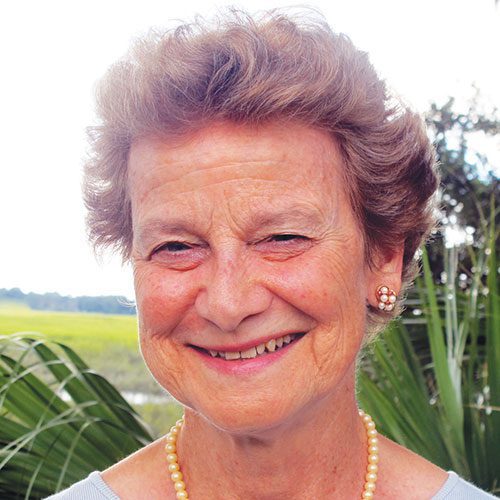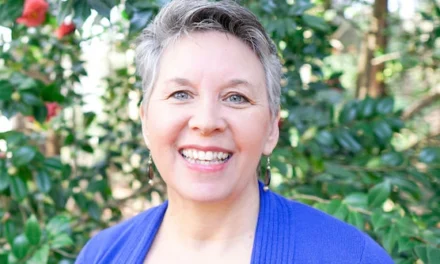Way back when, a favorite tv program of mine was “Touched By an Angel,” a series that was beautifully cast. Roma Downey brought a lovely Irishness to Monica, Della Reese as Tess was the bearer of wisdom and humor, and John Dye as the Angel of Death always popped in to surprise not only his fellow angels, but the unwitting victim he’d come to claim. Part of the show’s appeal was the humanness of each episode and the normalcy of death as a part of the life process.
Much as we’d like for death not to happen in our own lives or in the lives of those we care about, life will end at some point for all of us.
Kahlil Gibran’s The Prophet expresses that concept with two on-target comparisons to nature: “For life and death are one, even as the river and the sea are one.” And “For what is it to die but to stand naked in the wind and to melt into the sun?”
At the age of 80, my mother – who underlined the above quotes in her dog-eared copy of that remarkable book – swore she wasn’t going to die because, as she stated adamantly, she “might miss something.” Turns out her issue was that she wasn’t buying the concept that her church professed of what happened after death and was determined she wasn’t going anywhere until she honed in on a belief that appealed to her. Thank goodness she finally did and passed away peacefully in her sleep at 85, absolutely ready to go. So even “she who swore she would never die,” did.
For the past couple of years, all too many people have experienced the loss of a loved one. Or more than one. Sadly, that trend continues. Souls are leaving the earth in droves, it seems. No matter your choice of beliefs about what happens when one dies, over time those left behind can experience any or all of an array of emotions, from sadness, to anger, to relief, to – believe it or not – joy.
Last week, a childhood friend of mine in Kentucky was keeping watch at the bedside of her younger brother, who was in hospice care. The end was near, he seemed comfortable, and she and I were texting a bit about the experience of being with someone who’s dying. Years earlier when her mom had only a short time left, my friend said she’d climbed into bed with her mother and held her as she passed. That warmed my heart. And hers. Though they’d been great friends, she said it drew her even closer to her mom and created a cherished memory.
In my book, being at the bedside of someone who’s about to transition is helpful in the grieving process. Keep in mind, I’m generalizing here, speaking only from my own experience.
Circumstances did not permit me to be with either my dad or mom when they passed away. Talking with the separate caregivers who’d been with each was helpful for me. Both parents died comfortably in their sleep in hospice care a number of years apart and were seemingly ready to go. Fortunately, I had “made my peace” with them beforehand. My older sister had not, and grief appeared to hit her harder and longer. I believe there’s good reason why people rush to bedsides of the dying. Not that witnessing a passing will make the loss any less traumatic. But it might help.
Recent experience has taught me another important thing that can help – hospice.
Hospice care is a remarkable service for a patient who is at home, in a hospital, a nursing home or a dedicated hospice facility. Hospice neither hastens nor prolongs death but is focused on keeping a patient as comfortable as possible. Caregivers shoulder the bulk of patient care at home, which can demand an around-the-clock workload. Recognizing this, hospice offers assistance with tasks and errands, caregiver wellness support, end-of-life-caregiver education; psychological, social, emotional and spiritual counseling; and medical equipment, such as a hospital beds, wheelchairs and walkers.
Hospice takes a team approach in all these areas to promote a strong bond between patients, their loved ones and the health care providers. Does it ever!
Just before Christmas, my longtime friend Elizabeth – 40 years’ worth – went into hospice care in my home. My impressions of hospice were clear from the outset. All those connected with the organization, whether paid or volunteer, are there because they want to be. It’s a calling. The nurses are angels, as far as I’m concerned, as are the CNAs (Certified Nursing Assistants). Help with any question is available 24/7 and if a nurse is needed, she arrives pronto.
The minute Elizabeth called hospice, the Friends of Caroline Hospice team mobilized to make her comfortable, whatever that took. Having hospice in place eased my caregiver stress. Seeing my friend without pain or worries at last was certainly a part of that. As were a conversation with the hospice chaplain and a booklet he gave me, Gone from My Sight:The Dying Experience, written by RN Barbara Karnes. Having never been with a dying person, I’d no idea what to expect, what to look for, and this small tome walked me through the possible physical signs of dying, making sure to emphasize that because each person is an individual, “death comes in its own time, in its own way.” Though my friend hadn’t read it, her process was purely by the book.
On the Winter Solstice, Elizabeth’s breathing eased and she passed away quietly, an expression of peace on her face. Being a witness to that moment was truly a gift. She was no longer in pain and my belief is that her spirit left her body, which it no longer needed. That belief gives me great comfort. Perhaps she’s in a far different place, giggling with my mom. All I know is that I’m so glad I was there at her transition. And that hospice was.
At my mother’s memorial service in 1999, I read the following, as per her request. This segment of a poem expresses so well the possibility of joy after a loved one’s passing in lovely images of nature. Written by Mary Elizabeth Frye in 1932, it’s entitled simply, “Death.”
“Do not stand at my grave and weep
I am not there; I do not sleep.
I am a thousand winds that blow,
I am the diamond glints on snow,
I am the sun on ripened grain,
I am the gentle autumn rain.
. . . Do not stand at my grave and cry,
I am not there; I did not die.”
One of Elizabeth’s well-used expressions when she was leaving anywhere was “TTFN” (ta ta for now). That was my first thought as she passed away. Perhaps one day I’ll join her and my mom in laughter, wherever we may be. Who only knows?







